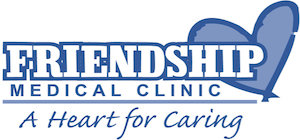COVID-19 Information
Basic Info
COVID-19 is a dangerous disease caused by a virus discovered in December 2019 in Wuhan, China. It is very contagious and has quickly spread around the world.
It most often causes respiratory symptoms that can feel much like a cold, a flu, or pneumonia, but COVID-19 can also harm other parts of the body.
- Most people who catch COVID-19 have mild symptoms, but some people become severely ill.
- Older adults and people who have certain underlying medical conditions are at increased risk of severe illness from COVID-19.
- Hundreds of thousands of people have died from COVID-19 in the United States.
- Vaccines against COVID-19 are safe and effective.
How It's Spread
- Breathing in air when close to an infected person who is exhaling small droplets and particles that contain the virus.
- Close personal contact, such as touching or shaking hands.
- Touching an object or surface with the virus on it, then touching your mouth, nose, or eyes.
Symptoms
People with COVID-19 have had a wide range of symptoms reported – ranging from mild symptoms to severe illness.
Symptoms may appear 2-14 days after exposure to the virus. Anyone can have mild to severe symptoms. People with
these symptoms may have COVID-19.
For a list of symptoms please click here.

Prevention of Spread
Get Vaccinated
- Authorized COVID-19 vaccines can help protect you from COVID-19.
- Learn more about getting COVID-19 vaccine click here.
Wear a mask
- If you are not fully vaccinated and aged 2 or older, you should wear a mask in indoor public places.
- People who have a condition or are taking medications that weaken their immune system may not be fully protected even if they are fully vaccinated. They should continue to take all precautions recommended for unvaccinated people, including wearing a well-fitted mask, until advised otherwise by their healthcare provider.
- If you are fully vaccinated, to maximize protection from the Delta variant and prevent possibly spreading it to others, wear a mask indoors in public if you are in an area of substantial or high transmission.
Practice Social Distancing
- Put 6 feet of distance between yourself and people who don’t live in your household.
- Avoid crowds and poorly ventilated spaces.
- If indoors, bring in fresh air by opening windows and doors, if possible.
Practice Good Hygiene
- Wash your hands often with soap and water for at least 20 seconds especially after you have been in a public place, or after blowing your nose, coughing, or sneezing. If soap and water are not readily available, clean your hands with a hand sanitizer that contains at least 60% alcohol.
- Cover your coughs and sneezes.
- Clean high touch surfaces daily.
- Monitor your health daily for signs and symptoms of COVID-19. If you do test positive, follow CDC Guidances.
If you need more information about COVID-19, check out the CDC's website. Also, here's a list of FAQs.
